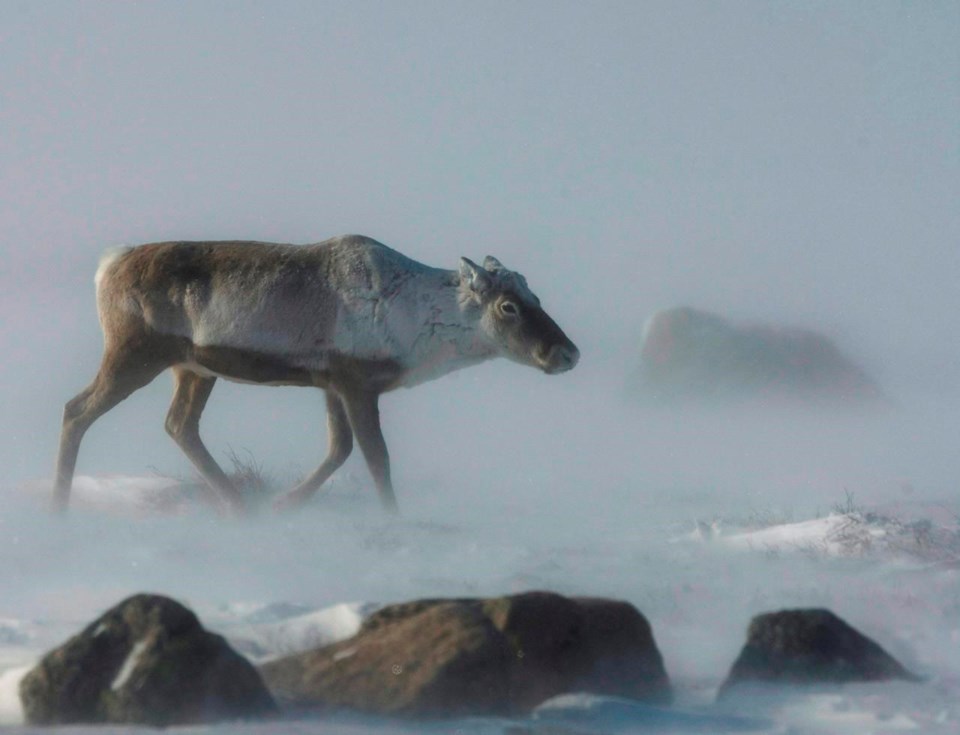MONTREAL — Conservationists are urging the Quebec government to finally publish its plan to protect caribou habitat, several years after it first promised a strategy to save the dwindling herds.
The latest delays came last year, when the province's Environment Department pushed back a scheduled June publication because of a record-setting wildfire season. The government said at the time it needed to consider the impact of the fires on the caribou — and on the logging industry, a lucrative sector that exploits the animals' habitat.
The release of the plan was then tentatively scheduled for the end of 2023, but Environment Minister Benoît Charette confirmed to La Presse in a year-end interview that the deadline was again being pushed back, to "mid-January or thereabouts." The government did not respond to a request for an update on when the strategy will be tabled.
The delays are a case of "history repeating itself," says Henri Jacob, president of environmental advocacy group Action boreale. He said the Coalition Avenir Québec has promised a strategy to save the caribou since before it was elected in 2018. The protection plan was first supposed to have been presented in 2019, and has been delayed ever since, he said.
"It's a strategy they're using to stretch out and stretch out (the process), and during this time they continue to harvest wood in parts of the forest that are essential to caribou," he said.
Jacob said there's no excuse for delaying the protection plan — even for forest fires. The strategy will still have to go through a consultation period, he said, and the government could use that opportunity to modify the plan to account for consequences of the historic wildfire season.
Alain Branchaud, executive director of environmental group SNAP Quebec, said it's urgent that action be taken soon. In an interview, he said caribou herds are declining across Quebec, mainly because of unsustainable forest industry practices that have disturbed or destroyed much of the animal's old-growth forest habitat.
"We can't accept any more delays," he said.
Branchaud said a serious plan to save the caribou would include protecting at least 35,000 square kilometres of their essential habitat. The federal government, based on scientific studies, has said caribou need at least 65 per cent of their habitat left undisturbed for a population to maintain itself — but Branchaud stresses that's only a strict minimum.
New research published in the academic journal "Land" found that 140,000 square kilometres of forest have been lost to logging in Quebec and Ontario since 1976, with a clear impact on caribou populations. The researchers, based in Canada and Australia, found that only two of the 21 caribou ranges they studied fell below the 35-per-cent disturbance threshold.
"Major changes are needed in boreal forest management in Ontario and Quebec for it to be ecologically sustainable, including a greater emphasis on protection and restoration for older forests, and to lower the risks for caribou populations," the study says.
While it has delayed the publication of the strategy, the province has relied on other measures to help save caribou, including its controversial decision to place three threatened herds in enclosures, and to kill wolves that get to close to caribou in the wild. It also carried out a series of consultations with stakeholders, with a report tabled in 2022.
Despite years of declining herd numbers and lack of a government plan to stop it, Branchaud sees some reasons for cautious optimism.
Quebec has committed to protecting 30 per cent of its territory; the Canadian government has done the same. Branchaud said those promises could push governments to conserve caribou habitat in partnership with Indigenous communities. He also feels there's a growing understanding that Quebec needs to log forests in a more sustainable way, despite pushback from the powerful forest industry lobby.
He said the decision in 2022 to separate the provincial wildlife and forestry departments — which used to be under the same minister — was also a positive development, since the interests of the two sides are often at odds.
Jacob said he's eager to see the plan unveiled, but he doesn't believe the province is ready to give up on lucrative logging and mining in caribou habitat despite the fact that it's home to many important plant and animal species, not to mention large carbon reserves.
"We no longer have any confidence in the government," he said, adding that he'd be happy to be proven wrong.
This report by The Canadian Press was first published Jan. 14, 2024.
Morgan Lowrie, The Canadian Press



